Description
ABSTRACT
Maritime Pirates: The Criminal Underworld of the Nigerian Maritime Domain
Dr. Abdulrazaq Abdulkadir*
Sea piracy is regarded as a major maritime security issue in the Gulf of Guinea. The number of piracy incidents around the Horn of Africa and Gulf of Guinea in recent years has increased due to a breakdown of good governance in Somalia and Nigeria, among other countries. This paper examines the causes of sea piracy in the Nigerian maritime domain. It also appraises the impact of piratical activities on the economic development of the nation as well as governmental efforts to curb the scourge. It argues that the initial lackadaisical attitude of the Nigerian government to deal with the situation is a major factor responsible for the increase in the activities of pirates. While considering various strategies which have been adopted in other parts of the world, the paper recommends effective Surface Surveillance System, Bilateral Arrangement, Regional Maritime Awareness, among others as ways to tackle the menace of maritime pirates in Nigeria.
INTRODUCTION
Nigeria is the most populous country in Africa with vast maritime domain with a coastline of 860km and maritime borders with Benin Republic, Sao Tome and Principe, Cameroon and Equatorial Guinea. The maritime domain is one of the major sources of income/revenue for the country1. Piracy is one of the challenges affecting the Nigerian maritime domain. Although, the Nigerian government established the Nigerian Maritime Administration and Safety Agency2 (NIMASA) to ensure maritime security, the impact of the agency is debatable as its enforcement mechanism has been outsourced to a private security company. The number of piracy incidents around the Horn of Africa and Gulf of Guinea in recent years has increased due to breakdown of good governance in Somalia, Nigeria and some other African countries. Also, the initial lackadaisical attitude of the Nigerian government and the international community to deal with the situation is a major factor responsible for the increase in the activities of pirates in the Nigerian maritime domain. It has been stated that piracy thrives more off Lagos because of small shore-based groups marauding on ships as they approach Lagos. Fisheries disputes and subsistence piracy3 are common occurrences along the Bakassi, Cross-Rivers and Akwa Ibom coasts where pirate attacks increased, mainly as a result of the unresolved Bakassi Peninsula issue and corrupt Nigerian licensing practices for fishing vessels. The Gulf of Guinea hosts major African maritime domains including Nigeria and it is the area that has witnessed more piracy incidents. For example, in 2012 alone, there were about 14 piracy attacks in the Gulf of Guinea, and it was reported that about 8 of the 14 attacks happened in Nigeria. In one of these attacks, the captain and the chief engineer of a vessel were killed.
This paper takes a look into the criminal activities of pirates in the Gulf of Guinea, the nature and factors responsible for piracy. The paper also brings to fore, the Nigerian government initiatives to address the problem. It is undeniable that the problem is crippling economic activities in the Niger-Delta as young people prefer to engage in criminal acts due to the economic advantage it fetches them. The paper argues that the enforcement mechanism is weak and recommends proactive collaboration of NIMASA with the Nigerian Navy rather than the privatization of security surveillance in the Nigerian maritime domain
* Ph.D. Lecturer, Department of Private & Property Law, Faculty of Law, University of Ilorin
- See Widson Patrick, ‘NIMASA and security of Nigerian water domain’ Daily Independent See also Nigerian Navy Today Accessed 11 March 2015
- This is established under the Nigerian Maritime Administration and Safety Agency Act, No 17 of 2007
- Subsistence piracy is a type of piratical activity driven by lack of employment and investment opportunities, and provides a
limited economic stimulus for coastal micro economies

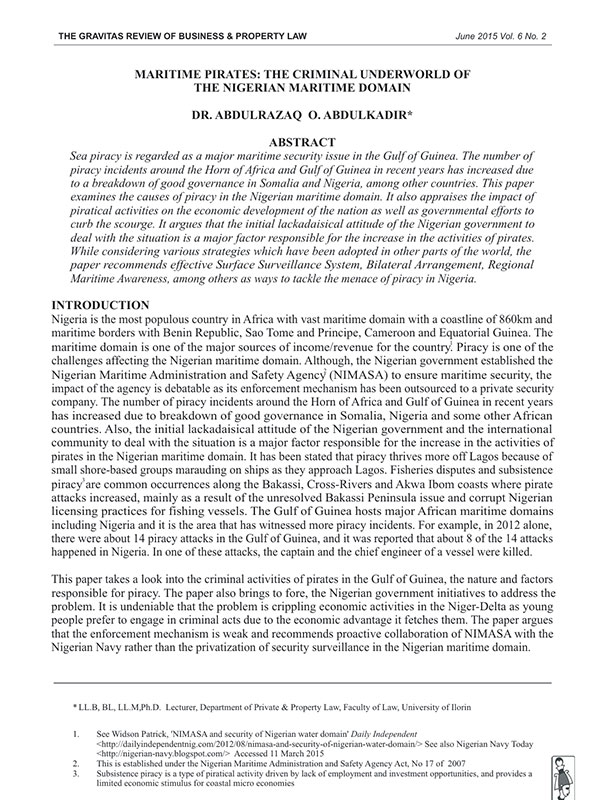
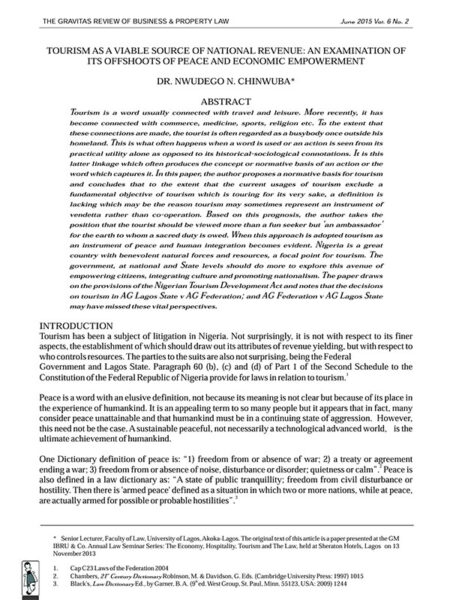
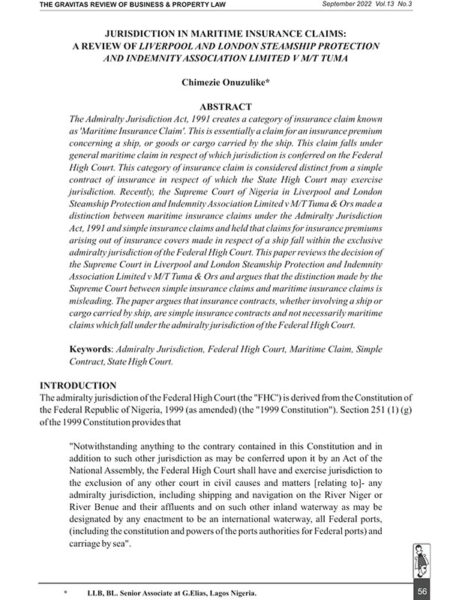
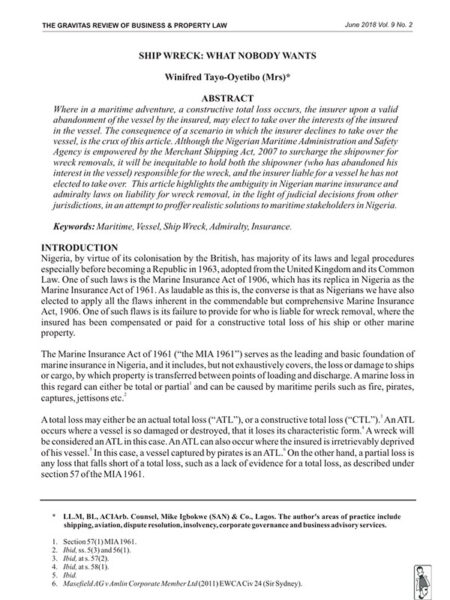
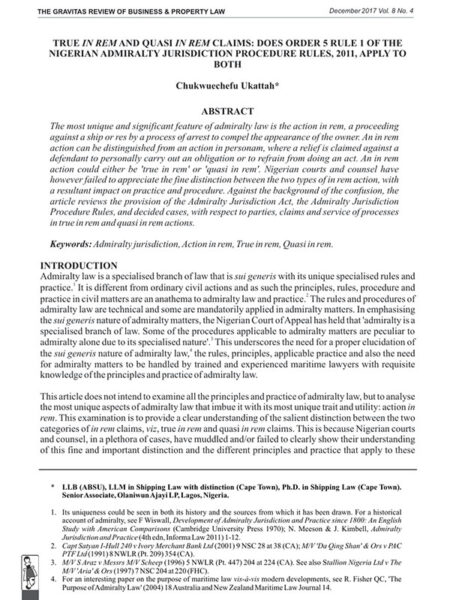


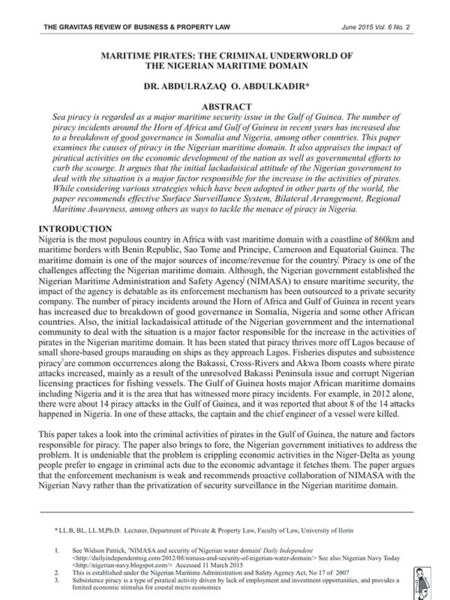
Reviews
There are no reviews yet.